Taking medicine to the streets and those in need in Oakland County
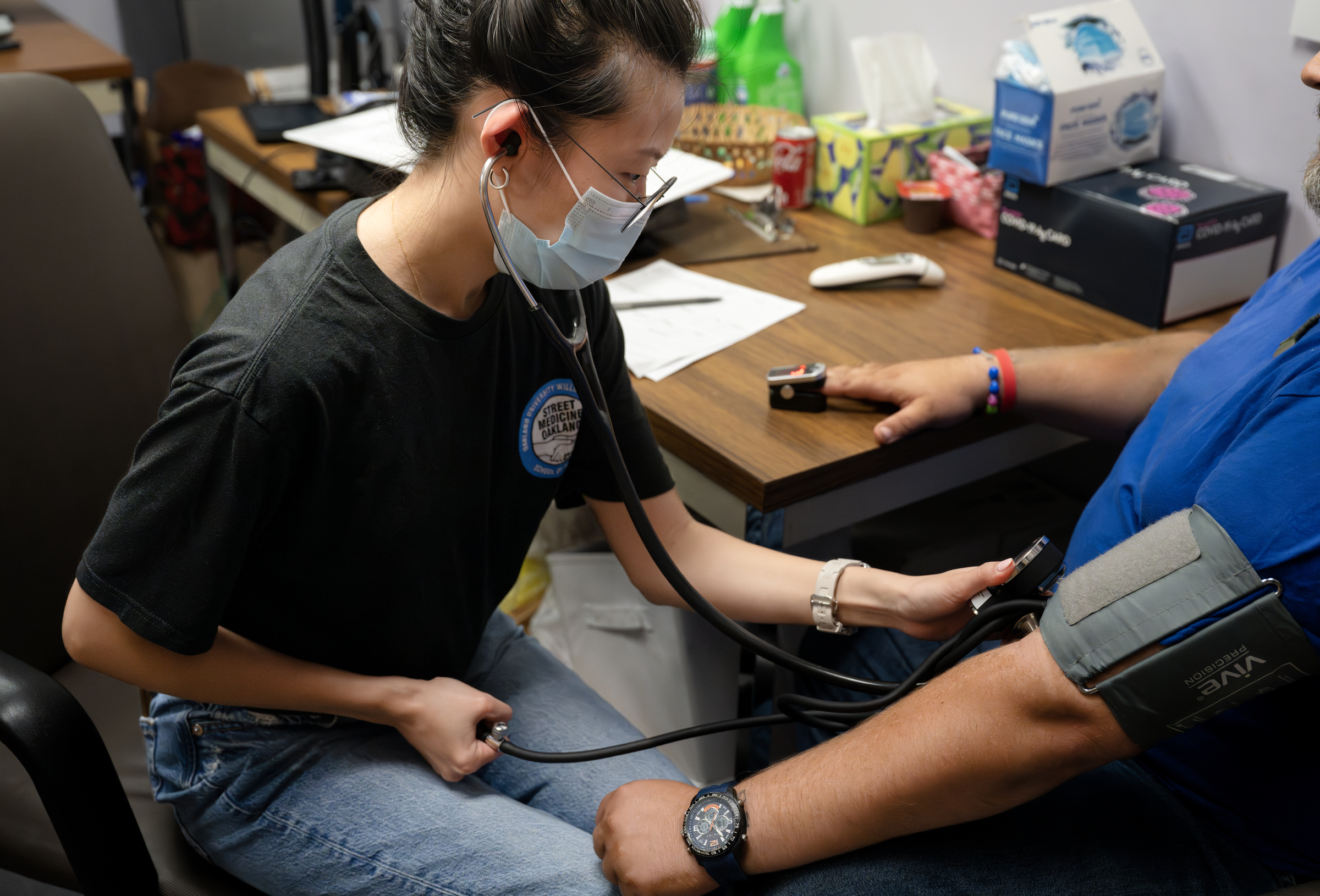
Third-year medical student Min Young Kim listened attentively at Pontiac’s HOPE homeless shelter as her patient described his pain, like someone was sticking a knife in him and twisting.
Through their conversation, Min Young also learned about his difficulty sleeping and how he donated plasma to have a source of income. Later, the patient also talked about how much he appreciated the Street Medicine Oakland team. Through them, he now has a primary care physician, a knee brace and the pain medicine he needs.
“I’m grateful for Street Medicine Oakland,” he said. “They take time to listen.”
What is Street Medicine Oakland?
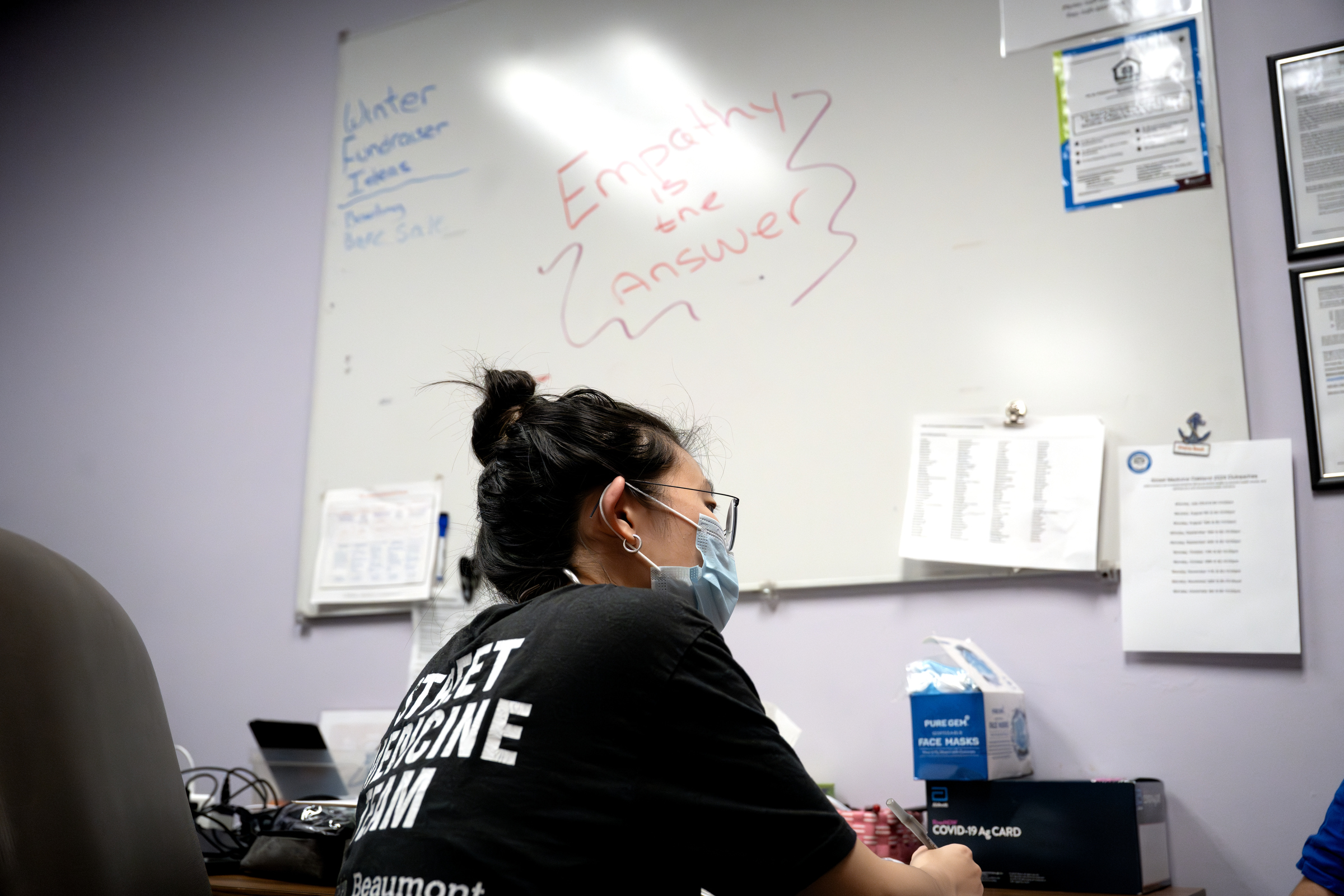
Street Medicine Oakland’s team is comprised of volunteer medical students, medical residents and attending physicians who go outside the traditional walls of a hospital weekly to meet patients where they are, including on the street or in a shelter.
There is an estimated 1,200 people experiencing homelessness or housing insecurity in Oakland County. The program — a collaboration between Corewell Health William Beaumont University Hospital and Oakland University William Beaumont School of Medicine — provides direct, free medical care to those patients in Pontiac and the surrounding communities.
Through the program, medical students are advised by residents like Eddie Czarnecki, D.O., emergency medicine, and physicians like Dawn Jung, M.D., emergency medicine. They see patients and do history and physical exams at Pontiac’s HOPE Shelter.
They then discuss the case with the staff member to create a care plan. Patients can have a variety of medical needs, including getting their vitals and blood sugar checked, medication refills, and help with ailments like back pain, allergies, upper respiratory infections and more. The team also spends one day a week focused on being present on the streets to build relationships, providing food, toiletries, clothing and more.
How does Street Medicine Oakland benefit the community?
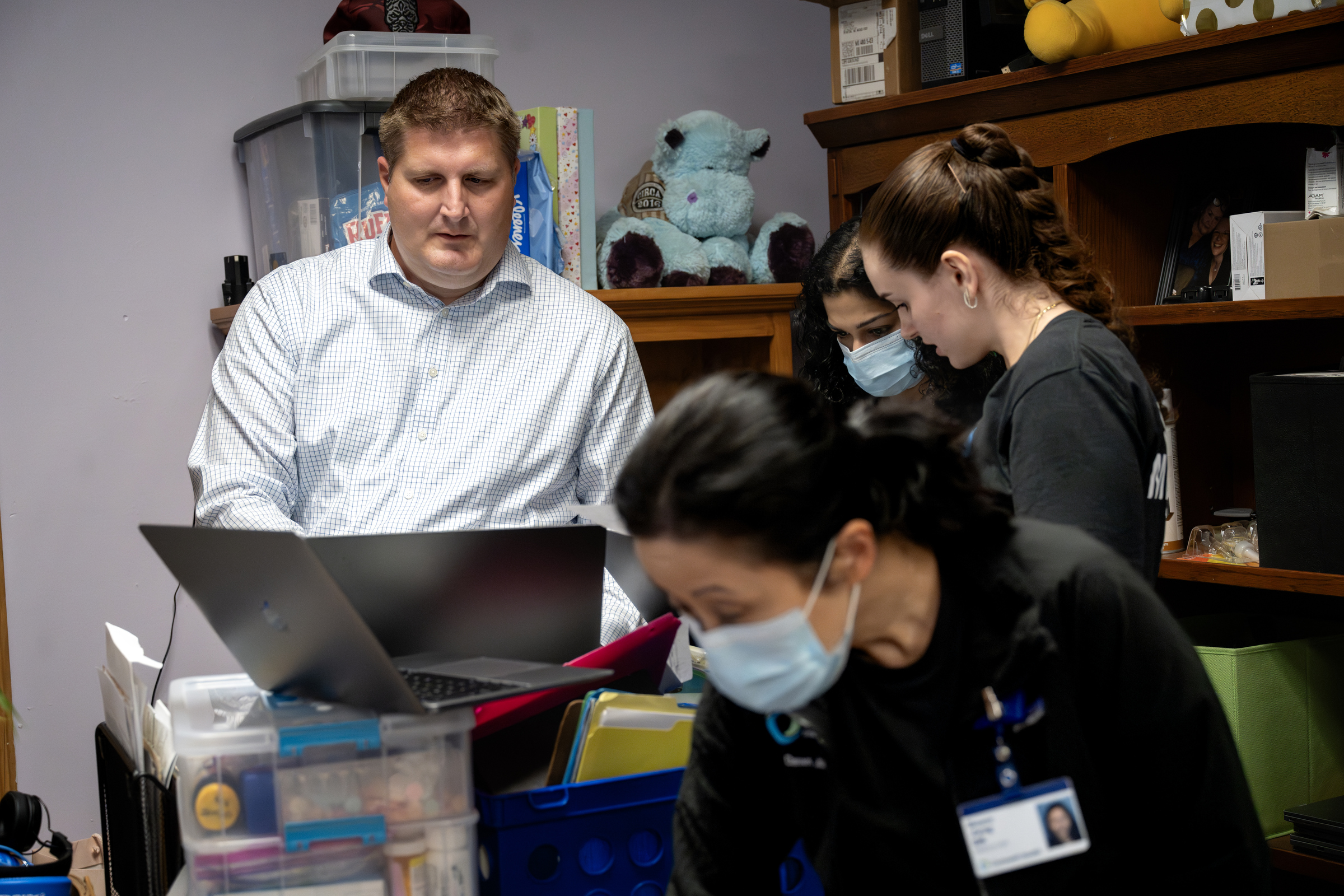
Brian Felice, M.D., medical director, Street Medicine Oakland, shared that it’s a chance for first- and second-year medical students to practice in ways they normally wouldn’t until further in their education. The hope is they can recognize there’s a great need for finding ways to provide equitable care to all patients, he said.
The traditional medicine approach, where patients must come to the emergency department or clinic, creates a lot of roadblocks that sometimes people can’t overcome due to work schedules, transportation or family issues.
“This is a way that we can bring care directly to them and eliminate some of those barriers that would otherwise prevent them from coming in,” he said. “It's a great way to reach those patients that need that care the most and those vulnerable populations.”
Dr. Felice added that in the emergency room, they might have five minutes with a patient then have to move on to the next one. With Street Medicine Oakland, patients have time with students to talk.
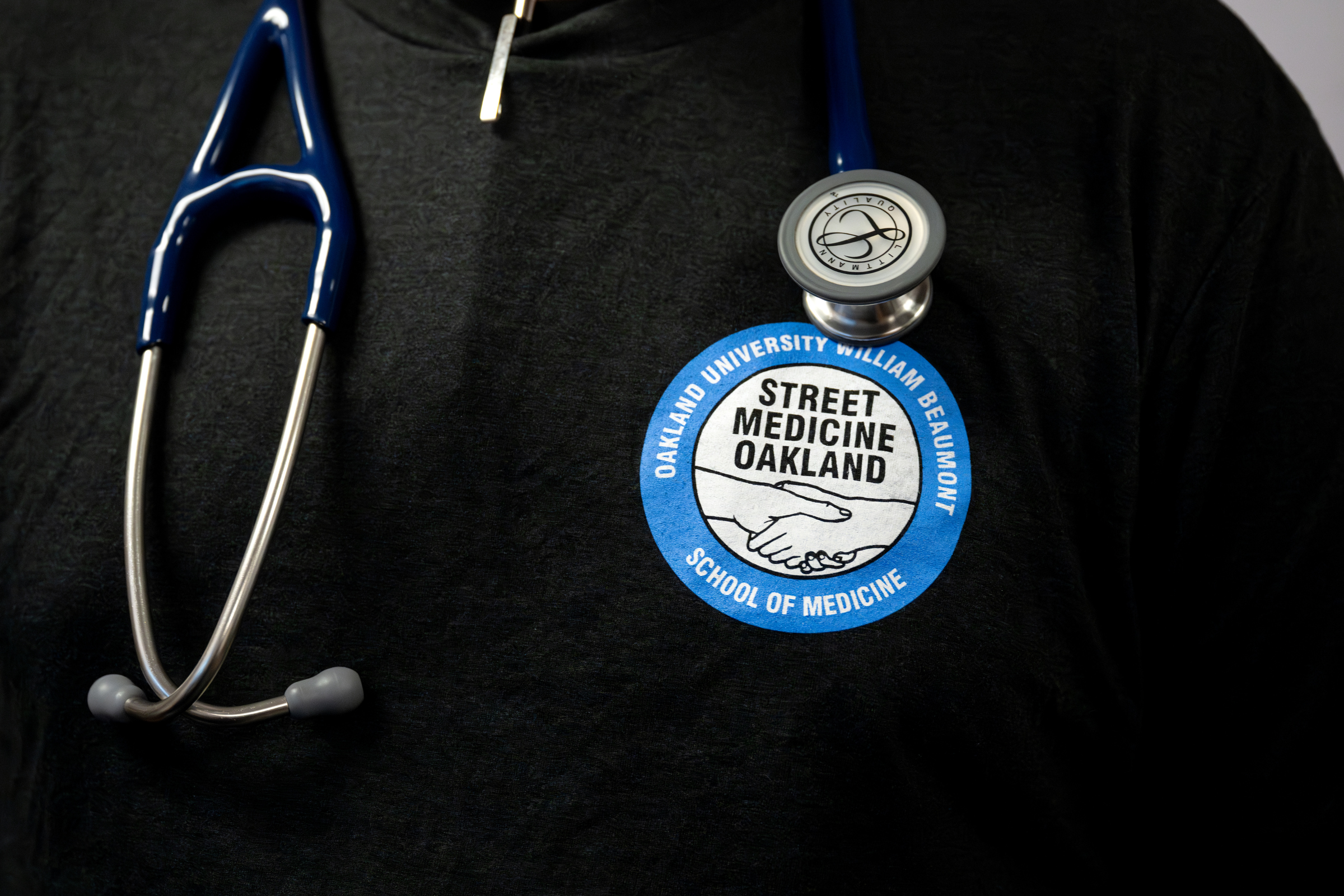
“Even if there’s not a lot to be done medically, they have time to have their concerns heard and addressed,” he said.
Brian Wright, executive director, HOPE shelters, said Street Medicine Oakland also helps build relationships and trust with people who often distrust service providers. This elevated trust helps people embrace medical care when offered and helps them start building trust in other areas.
“We appreciate the work of Street Medicine Oakland for more than their ability to make medical care accessible to people who otherwise would do without,” he said.
One medical student’s passion
Providing care and earning vulnerable populations’ trust are some of Meghna Iyer’s passions, a second-year medical student, and part of why she joined Street Medicine Oakland’s leadership team in 2023.
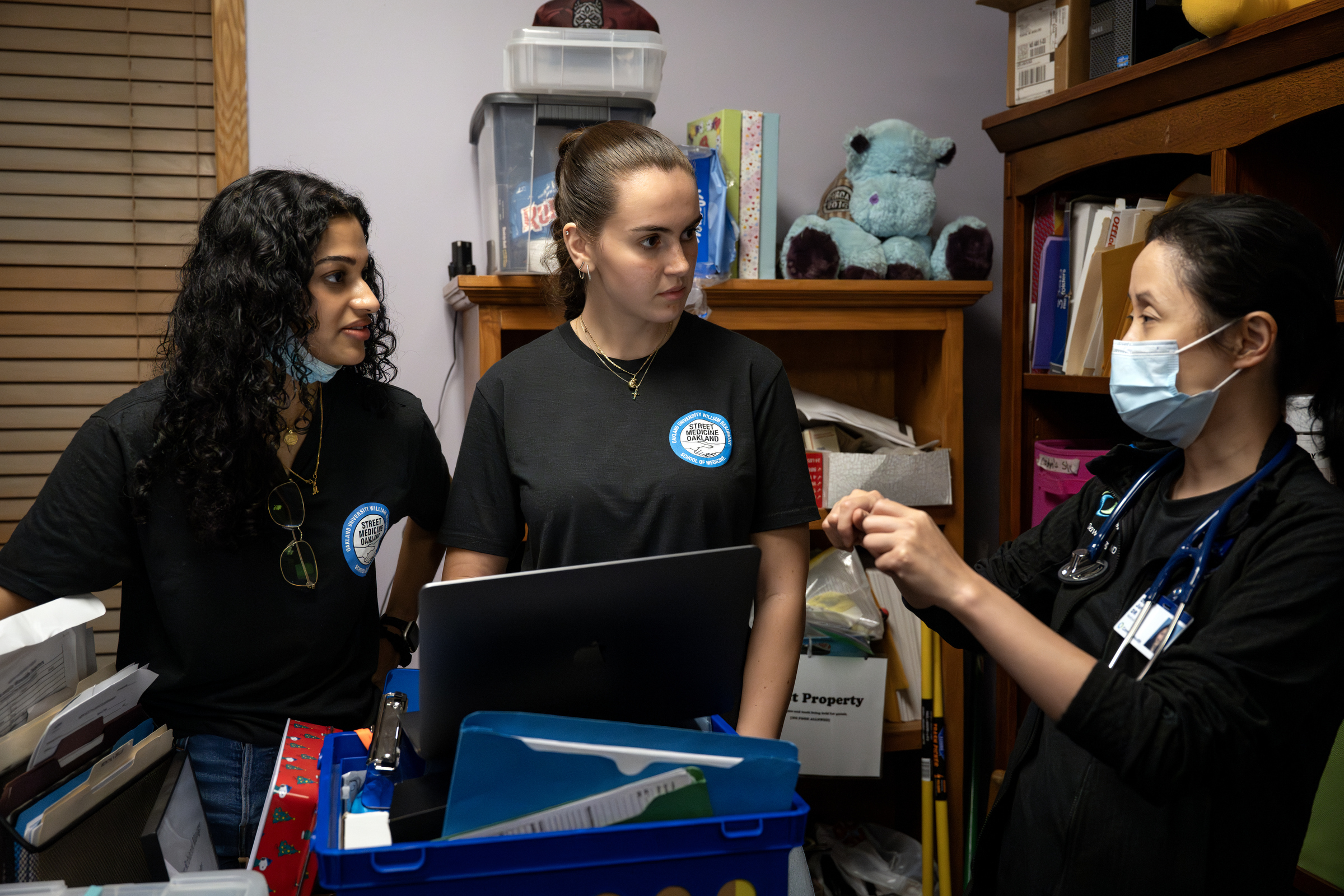
Meghna said her passion comes partly from how she grew up. Her parents immigrated to the United States from India, where her grandfather is a doctor. When she would visit family there, she would see people stuck in a cycle where they couldn’t get the help they needed and deserved.
She has seen similar cycles here in the U.S. One of her first experiences with Street Medicine Oakland was doing a drive through Pontiac providing resources to those in need and being introduced to people living in tents who needed care.
Meeting them and helping them navigate how to get the help they needed brought home to Meghna how many people need help that community members generally don’t know about.
It made her excited to continue to help and continue to learn, which she does through Street Medicine Oakland, and she encourages people to learn more about their community to help those in need.
“There’s so much that we have to do,” she said.